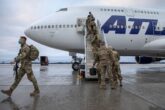October 20, 2009
CNAS Policy Brief - Afghanistan 2011: Three Scenarios
After eight years of conflict and an ongoing policy review by the Obama Administration, the future of Afghanistan remains uncertain. Yet, as the latest assessment in Washington takes place amidst a contested Afghan national election, conditions on the ground continue to deteriorate. The brief, authored by CNAS Fellow and U.S. Afghanistan policy expert Andrew Exum, is meant to serve as a guide for strategic Afghanistan policy planning by laying out the worst, most likely, and best-case scenario for what the country might look like in 24 months, and how U.S. policy might make each scenario more or less likely. Although all three scenarios involve risks, an Afghanistan at peace with itself and its neighbors remains a possibility.
In the “worst-case” and most unlikely scenario, Afghanistan returns to pre-9/11 conditions where insurgent groups again gain control of the nation, reestablish an Islamic Emirate, and grant refuge to transnational terror groups. This inevitably leads to civil war and furthers regional instability. In the “most-likely” scenario, the Obama Administration cautiously transitions to a coordinated counterterrorism mission where allied engagement is limited to training Afghan National Security Forces, employing precision airpower and conducting direct-action special operations. Given similar attempts to execute a small footprint-type mission in Afghanistan, the likelihood of failure is high and eventually leads to a protracted proxy war between the United States and Pakistan. In the third and “best-case” scenario, the United States and its allies agree to a fully resourced campaign to provide security for key population centers and continue to develop effective security forces. By committing to a foundation for peace in Afghanistan, the United States and its allies achieve its main policy objective of regional stability.
More from CNAS
-
A Failure to Plan: Examining the Biden Administration’s Preparation for the Afghanistan Withdrawal
Afghanistan, Iraq, and Vietnam. One failure is a horrible accident; two failures are a tragic coincidence; three failures are a disturbing trend that shows the U.S. government...
By Christopher D. Kolenda
-
Against All Odds
Eighteen months after taking power, the Taliban is intensifying its repression of Afghan civil society and cracking down on the rights and freedoms of all Afghans, especially ...
By Lisa Curtis, Annie Pforzheimer & Jan Mohammad Jahid
-
To Help Afghanistan, Engage Its Political Opposition
The effort to help Afghans shape a better alternative should begin now....
By Richard Fontaine & Lisa Curtis
-
International Community Must Do More to Protect Human Rights in Afghanistan
Human rights in Afghanistan, especially those of women and girls, have deteriorated sharply during the first year of Taliban rule. The very real prospect of losing a generatio...
By Lisa Curtis, Annie Pforzheimer & Jan Mohammad Jahid



